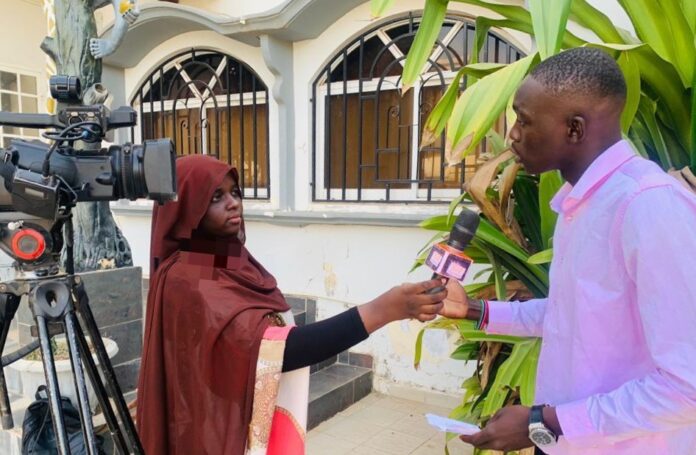By Mama A. Touray
Amfaal Mbaye, a “Backway” returnee, has opened up about his harrowing experience of embarking on a perilous journey across the Mediterranean Sea in search of better opportunities abroad.
A former Political Science student at the University of The Gambia, Mbaye left the country in 2022 with hopes of continuing his education and building a better life overseas. Today, back in The Gambia, he not only shares stories of struggle and survival but also carries a renewed sense of purpose and determination. He is committed to resuming his bachelor’s degree and remains hopeful for a brighter future.
Reflecting on his ordeal, Amfaal spoke of the pain, frustration, and torture he endured during his journey—a journey that ultimately ended in failure and forced him to return home. He described the dangerously inadequate boat used for the crossing, which played a major role in the failed attempt.
“My first push wasn’t successful because of bad agents, and the boat was just a balloon—not wood or metal. Even a sharp string could burst it, and everyone on board could die,” he explained.
Amfaal also recounted the desperate conditions in the desert, where food and clean water were scarce.
“I took an oath that I must make it, no matter the consequences. You’d see women and children struggling in the desert, everyone fighting for food. It was not easy—we survived on garri and biscuits. Sometimes we’d pour water into empty fuel gallons and drink it. When we belch, we smell the scent of oil, but we had no other choice. What shocked me most was seeing people drink their own urine to survive,” he recalled.
Despite spending over D400,000 on the unsuccessful journey, Amfaal believes the risk and expense were worth it—at least in principle.
“My family and my future are worth it. I didn’t plan to go to Europe and roam the streets or become a drug dealer. My plan was to further my education and live a decent life. The painful part is, if it fails, you lose everything. Yet, if you ask your family to give you that amount of money to start a business, they won’t.”
Sharing his thoughts on what drives many Gambians to leave the country, Amfaal pointed to economic hardship as the root cause.
“Gambians are economic migrants. We’re not fleeing war, famine, or persecution like some other nations, but we’re facing a different kind of struggle—poverty, lack of opportunity, and a failing economy. People from other countries are shocked when they hear Gambians are leaving. They don’t understand, but we know what we’re going through.”
He stressed that the government alone cannot stop irregular migration and proposed long-term solutions to address the issue.
“They can’t stop irregular migration by force. Between 2022 and 2023, more Gambians entered Spain than migrants from Libya or Tunisia entering Italy. The government needs to have real plans, starting with reforming our education system. The current curriculum doesn’t serve the needs of the population—especially the youth.”
Amfaal believes that if The Gambia’s education system were more aligned with the aspirations of its young people, fewer would risk their lives on such dangerous journeys.




